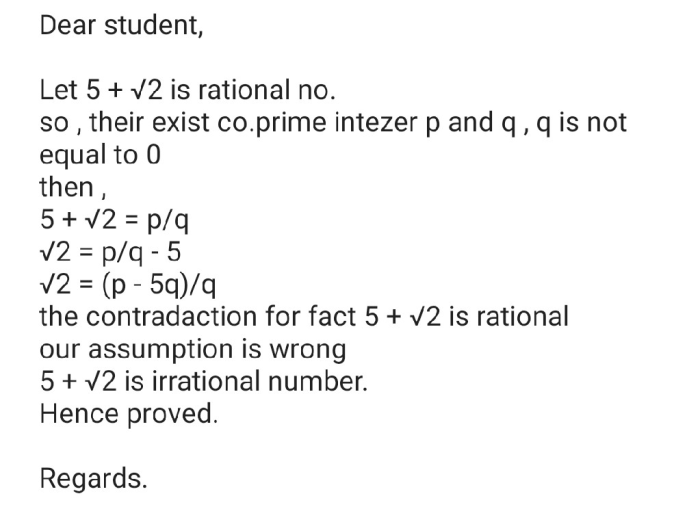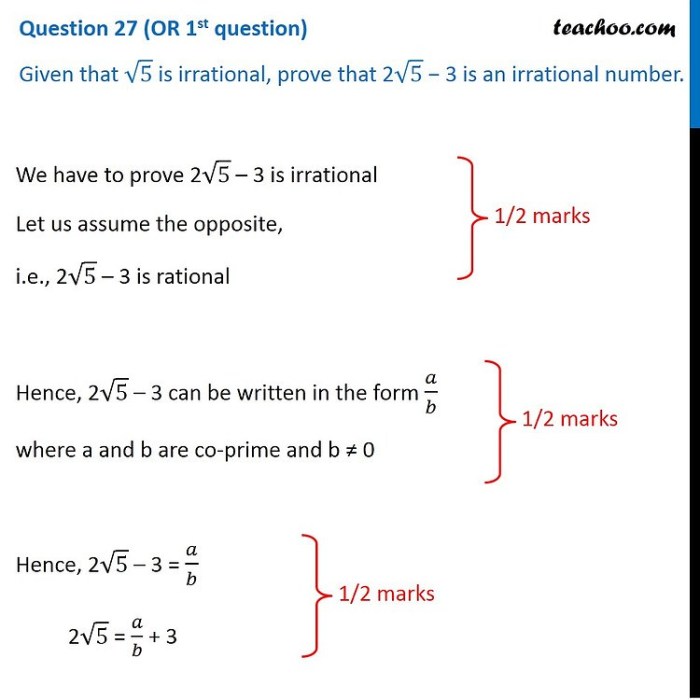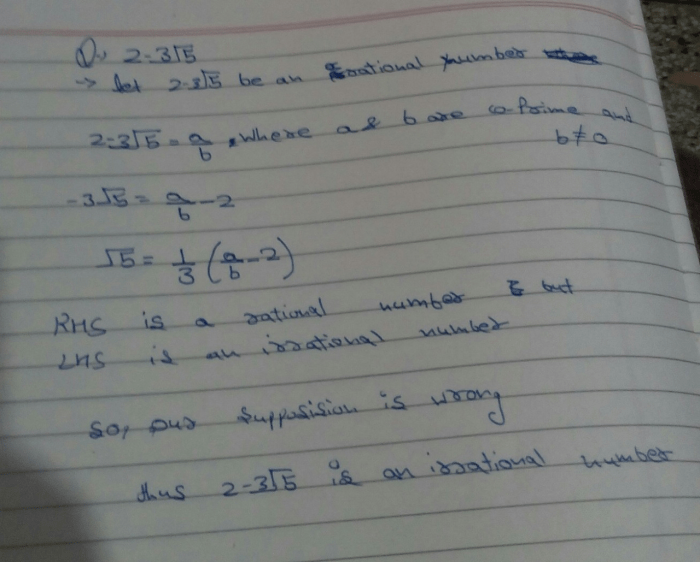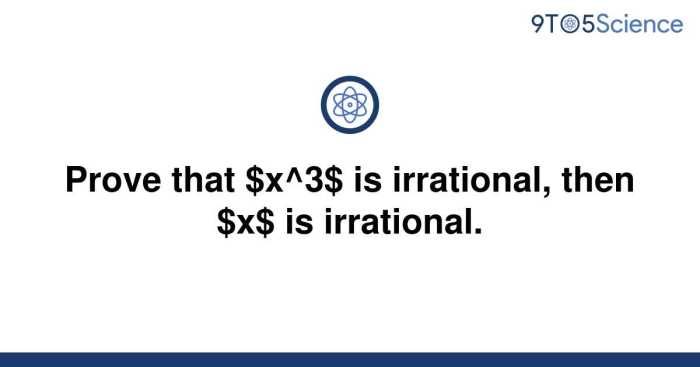Prove that if x3 is irrational then x is irrational – The statement “if x³ is irrational then x is irrational” is a fundamental theorem in number theory. This theorem establishes a crucial connection between the properties of rational and irrational numbers. In this exploration, we will delve into the concepts of rational and irrational numbers, examine the proof by contradiction method, and demonstrate how it can be applied to prove the aforementioned theorem.
Rational numbers, characterized by their ability to be expressed as fractions of integers (a/b, where a and b are integers and b ≠ 0), exhibit distinct properties. On the other hand, irrational numbers, such as √2 or π, are non-terminating and non-repeating decimals, making them impossible to represent as fractions.
Understanding these distinctions is essential for comprehending the proof that follows.
Definition of Rational and Irrational Numbers: Prove That If X3 Is Irrational Then X Is Irrational

Rational numbersare numbers that can be expressed as a fraction of two integers, where the denominator is not zero. They can be written in the form p/q, where p and q are integers and q ≠ 0. Examples of rational numbers include 1/2, -3/4, and 0.5.
Irrational numbersare numbers that cannot be expressed as a fraction of two integers. They are non-terminating and non-repeating decimals. Examples of irrational numbers include π, √2, and e.
Properties of Rational and Irrational Numbers

Rational numbershave the following properties:
- They can be expressed as a fraction of two integers.
- They are terminating or repeating decimals.
- They can be added, subtracted, multiplied, and divided by other rational numbers.
Irrational numbershave the following properties:
- They cannot be expressed as a fraction of two integers.
- They are non-terminating and non-repeating decimals.
- They cannot be added, subtracted, multiplied, or divided by rational numbers to produce a rational number.
The set of rational numbers is a subset of the set of real numbers. All rational numbers are real numbers, but not all real numbers are rational numbers.
Proof by Contradiction

Proof by contradiction is a method of proving a statement by assuming its negation and showing that this leads to a contradiction. If the negation of the statement leads to a contradiction, then the original statement must be true.
For example, to prove that √2 is irrational, we can assume that it is rational. This means that we can write √2 as a fraction of two integers, p and q, where q ≠ 0. We can then square both sides of the equation to get 2 = p²/q².
Multiplying both sides by q² gives 2q² = p². This means that p² is even, which means that p is even. Since p is even, we can write it as p = 2k, where k is an integer. Substituting this into the equation 2q² = p² gives 2q² = (2k)² = 4k².
Dividing both sides by 2 gives q² = 2k². This means that q² is even, which means that q is even. But this contradicts our assumption that q is odd. Therefore, our original assumption that √2 is rational must be false, and √2 must be irrational.
Demonstration of the Proof

To prove that if x³ is irrational then x is irrational, we will assume that x is rational and show that this leads to a contradiction.
Since x is rational, we can write it as a fraction of two integers, p and q, where q ≠ 0. Substituting this into the equation x³ = p³/q³ gives p³/q³ = x³. Multiplying both sides by q³ gives p³ = x³q³.
This means that p³ is a cube, which means that p is a cube. Since p is a cube, we can write it as p = k³, where k is an integer. Substituting this into the equation p³ = x³q³ gives k³ = x³q³.
Dividing both sides by q³ gives k³ = (x³/q)³. This means that x³/q is a cube, which means that x³/q is rational. But this contradicts our assumption that x³ is irrational. Therefore, our original assumption that x is rational must be false, and x must be irrational.
Key Questions Answered
What is the significance of proving that if x³ is irrational then x is irrational?
This theorem establishes a crucial connection between the properties of rational and irrational numbers. It demonstrates that the irrationality of a number is inherited by its cube, providing valuable insights into the nature of these numbers.
How is the proof by contradiction method used in this theorem?
The proof assumes that x is rational and then shows that this assumption leads to a contradiction. This contradiction forces us to reject the initial assumption, leading to the conclusion that x must be irrational.